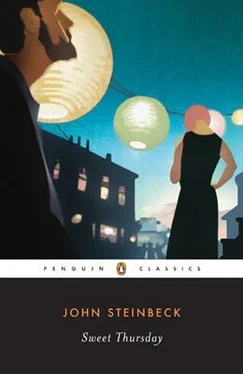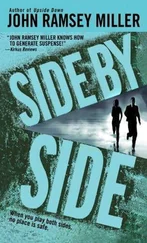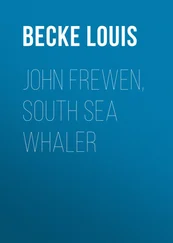John Steinbeck - Sweet Thursday
Здесь есть возможность читать онлайн «John Steinbeck - Sweet Thursday» весь текст электронной книги совершенно бесплатно (целиком полную версию без сокращений). В некоторых случаях можно слушать аудио, скачать через торрент в формате fb2 и присутствует краткое содержание. Год выпуска: 2008, ISBN: 2008, Издательство: Penguin Classics, Жанр: Классическая проза, на английском языке. Описание произведения, (предисловие) а так же отзывы посетителей доступны на портале библиотеки ЛибКат.
- Название:Sweet Thursday
- Автор:
- Издательство:Penguin Classics
- Жанр:
- Год:2008
- ISBN:1-4362-4126-X
- Рейтинг книги:5 / 5. Голосов: 1
-
Избранное:Добавить в избранное
- Отзывы:
-
Ваша оценка:
- 100
- 1
- 2
- 3
- 4
- 5
Sweet Thursday: краткое содержание, описание и аннотация
Предлагаем к чтению аннотацию, описание, краткое содержание или предисловие (зависит от того, что написал сам автор книги «Sweet Thursday»). Если вы не нашли необходимую информацию о книге — напишите в комментариях, мы постараемся отыскать её.
Cannery Row
Sweet Thursday — читать онлайн бесплатно полную книгу (весь текст) целиком
Ниже представлен текст книги, разбитый по страницам. Система сохранения места последней прочитанной страницы, позволяет с удобством читать онлайн бесплатно книгу «Sweet Thursday», без необходимости каждый раз заново искать на чём Вы остановились. Поставьте закладку, и сможете в любой момент перейти на страницу, на которой закончили чтение.
Интервал:
Закладка:
Doc’s greatest talent had been his sense of paying as he went. The finish line had meant nothing to him except that he had wanted to crowd more living into the stretch. Each day ended with its night; each thought with its conclusion; and every morning a new freedom arose over the eastern mountains and lighted the world. There had never been any reason to suppose it would be otherwise. People made pilgrimages to the laboratory to bask in Doc’s designed and lovely purposelessness. For what can a man accomplish that has not been done a million times before? What can he say that he will not find in Lao-Tse [34] Lao-Tse: Major Chinese philosopher said to have lived in the sixth century BCE; however, many historians place his life in the fourth century BCE. He was credited with writing the seminal Taoist work, the Tao Te Ching, and he was recognized as the founder of Taoism.
or the Bhagavadgita [35] Bhagavadgita: The Bhagavad Gita is a passage of 701 verses in the epic Mahabharata and is revered as a sacred text of Hindu philosophy. Bhagavad Gita, a conversation between divine Krishna and Arjuna, proposes that true enlightenment comes from growing beyond identification with the Ego, the little Self, and that one must identify with the Truth of the immortal Self (the soul, or Atman), the ultimate Divine Consciousness. Through detachment from the personal Ego, the Yogi, or follower of a particular path of Yoga, is able to transcend his mortality and attachment from the material world, and see the Infinite.
or the Prophet Isaiah? [36] Prophet Isaiah: Jewish prophet (eighth–seventh centuries BCE) who prophesied during the reigns of four biblical kings and is generally regarded to have authored the Book of Isaiah, which delivers messages of peace, compassion, and justice.
It is better to sit in appreciative contemplation of a world in which beauty is eternally supported on a foundation of ugliness: cut out the support, and beauty will sink from sight. It was a good thing Doc had, and many people wished they had it too.
But now the worm of discontent was gnawing at him. Maybe it was the beginning of Doc’s middle age that caused it—glands slackening their flow, skin losing its bloom, taste buds weakening, eyes not so penetrating, and hearing dulled a little. Or it might have been the new emptiness of Cannery Row—the silent machines, the rusting metal. Deep in himself Doc felt a failure. But he was a reasonably realistic man. He had his eyes examined, his teeth X-rayed. Dr. Horace Dormody [37] Dr. Horace Dormody: In 1930, Dr. Horace Dormody (1897–1984), with his brother Dr. Hugh Dormody, opened Peninsula Community Hospital (renamed Community Hospital of Monterey Peninsula in 1961).
went over him and discovered no secret focus of infection to cause the restlessness. And so Doc threw himself into his work, hoping, the way a man will, to smother the unease with weariness. He collected, preserved, injected, until his stock shelves were crowded again. New generations of cotton rats crawled on the wire netting of the cages, and four new rattlesnakes abandoned themselves to a life of captivity and ease.
But the discontent was still there. The pains that came to Doc were like a stir of uneasiness or the flick of a skipped heartbeat. Whisky lost its sharp delight and the first long pull of beer from a frosty glass was not the joy it had been. He stopped listening in the middle of an extended story. He was not genuinely glad to see a friend. And sometimes, starting to turn over a big rock in the Great Tide Pool [38] Great Tide Pool: An especially rich ecological zone and consequently one of Doc’s prime specimen collecting sites. It is located off Monterey’s Ocean View Boulevard at the western foot of the Point Pinos light house. In chapter 4 of Cannery Row, Steinbeck wrote: It is a fabulous place: when the tide is in, a wave-churned basin, creamy with foam, whipped by the combers that roll in from the whistling buoy on the reef. But when the tide goes out the little water world becomes quiet and lovely. The sea is very clear and the bottom becomes fantastic with hurrying, fighting, feeding, breeding animals.
—a rock under which he knew there would be a community of frantic animals—he would drop the rock back in place and stand, hands on hips, looking off to sea, where the round clouds piled up white with pink and black edges. And he would be thinking, What am I thinking? What do I want? Where do I want to go? There would be wonder in him, and a little impatience, as though he stood outside and looked in on himself through a glass shell. And he would be conscious of a tone within himself, or several tones, as though he heard music distantly.
Or it might be this way. In the late night Doc might be working at his old and battered microscope, delicately arranging plankton on a slide, moving them with a thread of glass. And there would be three voices singing in him, all singing together. The top voice of his thinking mind would sing, “What lovely little particles, neither plant nor animal but somehow both—the reservoir of all the life in the world, the base supply of food for everyone. If all of these should die, every other living thing might well die as a consequence.” The lower voice of his feeling mind would be singing, “What are you looking for, little man? Is it yourself you’re trying to identify? Are you looking at little things to avoid big things?” And the third voice, which came from his marrow, would sing, “Lonesome! Lonesome! What good is it? Who benefits? Thought is the evasion of feeling. You’re only walling up the leaking loneliness.”
Sometimes he would leave his work and walk out to the lighthouse to watch the white flail of light strike at the horizons. Once there, of course, his mind would go back to the plankton, and he would think, It’s a protein food of course. If I could find a way to release this food directly to humans, why, nobody in the world would have to go hungry again. And the bottom voice would sing, “Lonesome, lonesome! You’re trying to buy your way in.”
Doc thought he was alone in his discontent, but he was not. Everyone on the Row observed him and worried about him. Mack and the boys worried about him. And Mack said to Fauna, “Doc acts like a guy that needs a dame.”
“He can have the courtesy of the house anytime,” said Fauna.
“I don’t mean that,” said Mack. “He needs a dame around. He needs a dame to fight with. Why, that can keep a guy so goddam busy defending himself he ain’t got no time to blame himself.”
Fauna regarded marriage with a benevolent eye. Not only was it a desirable social condition, but it sent her some of her best customers.
“Well, let’s marry him off,” said Fauna.
“Oh no,” said Mack. “I wouldn’t go that far. My God! Not Doc!”
Doc tried to solve his problem in the ancient way. He took a long, leisurely trip to La Jolla, four hundred miles south. He traveled in the old manner, with lots of beer and a young lady companion whose interest in invertebrate zoology Doc thought might be flexible—and it was.
The whole trip was a success: weather calm and warm, tides low. Under the weed-wreathed boulders of the intertidal zone Doc found, by great good fortune, twenty-eight baby octopi with tentacles four or five inches long. It was a little bonanza for him if he could keep them alive. He handled them tenderly, put them in a wooden collecting bucket, and floated seaweed over them for protection. An excitement was growing in him.
His companion began to be a little disappointed. Doc’s enthusiasm for the octopi indicated that he was not as flexible as she. And no girl likes to lose center stage, particularly to an octopus. The four-hundred-mile trip back to Monterey was made in a series of short dashes, for Doc stopped every few miles to dampen the sack that covered the collecting bucket.
Читать дальшеИнтервал:
Закладка:
Похожие книги на «Sweet Thursday»
Представляем Вашему вниманию похожие книги на «Sweet Thursday» списком для выбора. Мы отобрали схожую по названию и смыслу литературу в надежде предоставить читателям больше вариантов отыскать новые, интересные, ещё непрочитанные произведения.
Обсуждение, отзывы о книге «Sweet Thursday» и просто собственные мнения читателей. Оставьте ваши комментарии, напишите, что Вы думаете о произведении, его смысле или главных героях. Укажите что конкретно понравилось, а что нет, и почему Вы так считаете.










